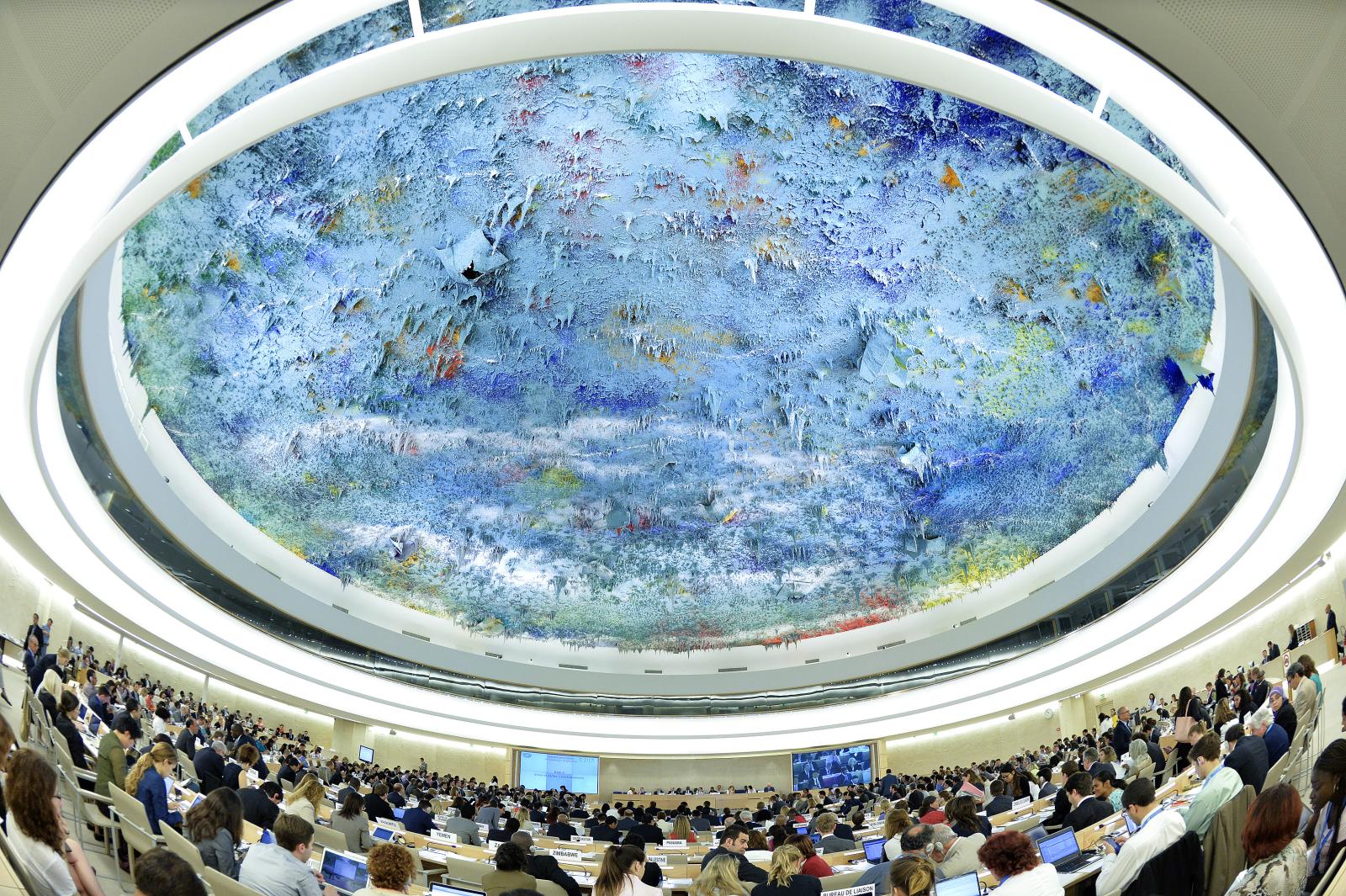26th Session
 A general view at a 26th session of the Human Rights Council. 26 June 2014. UN Photo / Jean-Marc Ferré
A general view at a 26th session of the Human Rights Council. 26 June 2014. UN Photo / Jean-Marc Ferré
Last update on June 23
In four oral statements and one side event, Conectas and partners are presenting to the 26th session of the UN Human Rights Council (HRC), this week, issues such as the violation of freedom of expression and the right to protest, the challenges facing the UN Working Group on Business and Human Rights, immigration, social participation in foreign policy and the abuses being committed in the context of the World Cup. The session is being held from June 10-27 in Geneva, Switzerland.
The first oral statement was given on June 11, during a special session on freedom of expression. Conectas, Article 19 and Justiça Global spoke about the criminalization of protests in Brazil and the role of the Executive, the Judiciary and the Legislative in the repressive crackdown.
“In the National Congress, the majority of the bills dealing with social protest, which provide for the crimes of terrorism, vandalism and similar offenses, are aimed at arresting and imposing harsher punishments on demonstrators and protest movements,” said Paulo Lugon, the representative of Conectas in Geneva, during the session. “These bills have been supported by the same political actors who are silent when confronted with the countless episodes of police violence at demonstrations.”
- Click here to read the full statement on freedom of expression.
On June 12, the subject was the UN Working Group on Business and Human Rights. Conectas, Cels (Center for Legal and Social Studies), Forum-Asia and the Indian Law Resource Center claimed that the Working Group had focused on the identification of good practices and on the dissemination of the Guiding Principles, instead of guaranteeing access to justice. The organizations also called on the group to adopt higher standards of human rights protection, particularly for more vulnerable groups, and more participatory and transparent working methodologies.
Click here to read the full statement on business and human rights.
On June 16, Conectas and Cels spoke about immigration policies in Latin America, in particular the need to stop addressing the issue from a national security perspective. Although they recognized that progress has been made, the organizations called for the immediate approval of a new immigration law in Brazil and the ratification of the International Convention on the Protection of the Rights of All Migrant Workers and Members of Their Families.
- Click here to read the full statement on immigration.
On Thursday, June 19, together with the People’s World Cup Committee of São Paulo, Conectas denounced to the Council the forced evictions, the violation of the freedom of movement and the freedom to work, the creation of exclusion zones and the criminalization of the right to protest during the preparations for the event. This issue had already been submitted to the UN in 2013. “The Brazilian State has renounced its sovereignty and the rights of Brazilians in order to cater to the wishes of FIFA,” said the organizations. They called on the government to compensate all the people who have lost their houses, to reject the legislative bills that criminalize social movements, to investigate police abuse and to introduce policies to protect victims of sexual exploitation.
- Click here to read the full statement on the World Cup.
Foreign Policy
Conectas, Forum-Asia, Commonwealth Human Rights Initiative and Civicus held a side event on June 10 on the influence that NGOs have on the foreign policy of their countries. Diplomats discussed with activists strategies and good practices for relations between States and organizations before, during and after multilateral meetings – such as this session of the HRC.
The latest issue of SUR Journal, #SUR19, was also launched at the event. The issue addresses precisely whether the foreign policy of emerging countries promotes or violates human rights.
Watch the statements:
Freedom of expression (starting at minute 1:01)
UN Working Group on Business and Human Rights (starting at minute 9:38)
Immigration policy (starting at minute 42:31)


